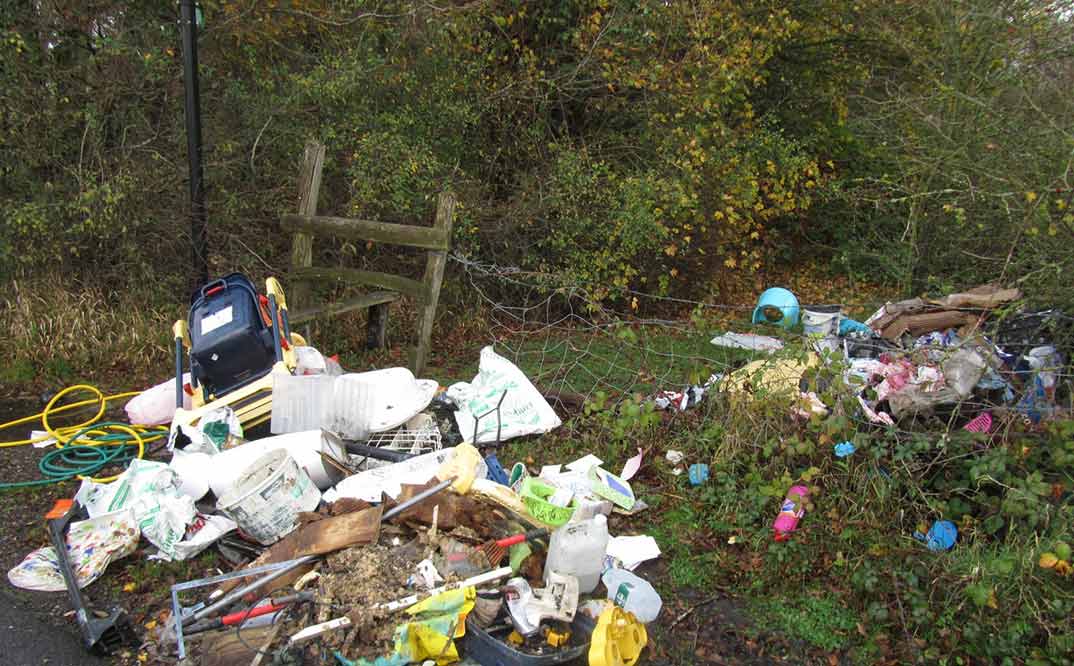Incidents of fly-tipping in Tunbridge Wells have dropped over the past year, although prosecution is still proving difficult.
New figures have revealed that despite the lower numbers, only four fines were issued to offenders in Tunbridge Wells in 2022.
According to the Department for the Environment, Food and Rural Affairs (DEFRA), 857 incidents were reported in Tunbridge Wells in 2021/22, compared to 926 in 2020/21. Of this total, 222 were on highways, 469 were on footpaths or bridlepaths and 94 were on Council land.
Across the whole of the South East, a total of 102,916 fly-tipping incidents were recorded in 2021/22, making it the third-worst region in the country, behind the North West and London. However, this was down from 121,283 in the previous year.
The majority of items that are dumped comprise household waste, which made up 350 incidences in Tunbridge Wells last year, along with 78 reports of white goods, such as washing machines and fridges. Fly-tipping is a criminal offence and is punishable with fines of up to £50,000 and/or 12 months in prison.
Over the past year, Tunbridge Wells Borough Council (TWBC) has launched 435 investigative actions and has issued six warning letters. However, only four fines for fly-tipping were issued, totalling £3,200. Most of the amounts were between £201 and £500.
Fly-tipping can be costly to local authorities who pay an average of £1,000 to clear the rubbish, with larger incidents costing up to £10,000. In the South East, clearance costs amounted to £664,624.
An additional level of nuisance around the issue of fly-topping revolves around who can remove the items, depending on where the waste is dumped.
If the waste is left on public land owned by the Council, then the local authority is required to clear it, but if fly-tipping occurs on private land, then it is the landowner’s responsibility. Councils that fail to clear up fly-tipping incidents could face prosecution, so when property boundaries are blurred, it becomes a legally contentious issue, too.
Councillor Luke Everitt, Cabinet Member for Environment, Sustainability and Carbon Reduction at TWBC said: “Though I positively greet the news of a drop in the figure of reported fly-tips, the fight continues. It is disgusting that offenders continue to use our streets as their own personal tip, often for their own financial gain and at a cost to everyone else.
“Tunbridge Wells Borough Council uses a Hit Squad Team to remove reported fly-tips. Fly-tips are investigated for evidence of where they have come from, and where possible they will be followed up and legal action taken.
“But this comes at a cost to residents. We pay our contractor an annual sum for providing us with a Hit Squad Team. We will continue to work with Kent Police and all other agencies to try to keep our streets clean and stop the public and private landowners from footing the bill for selfish fly-tippers, but it is often frustratingly difficult to prosecute, and uses already stretched resources.”








